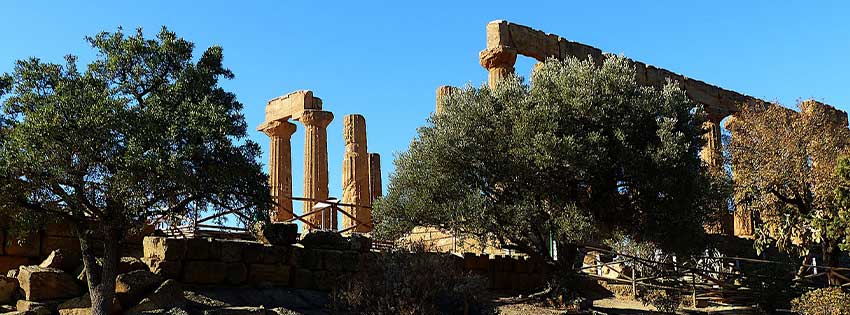Introduction
Apulian oil is a culinary treasure with a thousand-year history rooted in the southern Italian region. Native to the eastern Mediterranean and the Middle East, the olive tree followed the path of European man until it successfully took root in Puglia, resulting in an oil with a unique flavor and aroma. We will explore the ancient origins of Apulian oil, its role in the Roman Empire, its challenges and revivals over the centuries, and its importance in local gastronomic culture. Puglia’s oil is more than a condiment: it represents a thousand-year-old tradition that nurtures history and passion.
The First Traces: Ancient Origins of Apulian Oil
The first traces of the presence of olives in Apulia date back thousands of years, with evidence of olive consumption dating back 8-10 thousand years. In ancient Mediterranean civilizations, such as the Phoenicians, Greeks, Arabs, and Romans, the olive tree and its oil assumed a central role in daily life, gastronomy, and trade.
The Journey of Oil: From Ancient Attica to Puglia
The olive tree, originally from Attica, crossed the Mediterranean and followed the path of European man to the West, finally arriving in Apulia. The intensification of maritime trade along the coasts of southern Italy, thanks to the Phoenicians, Greeks and Romans, contributed to the development of olive growing in Apulia, whose millennia-old civilization was strongly rooted in the presence of the olive tree.
Apulian Oil: A Strategic Asset of the Roman Empire.
With the rise of the Roman Empire, olive oil assumed a strategic function in trade and exchange among different peoples. Apulian oil became a valuable commodity exported to the ports of Brindisi, Gallipoli, Otranto and Taranto, attracting the interest of various trading powers such as the Venetians, Tuscans, Genoese, Russians, British and Germans.

The Dark Period and the Revival of Olive Growing.
However, the early medieval period represented a poor phase for olive growing in Apulia, with isolated olive trees and unfavorable climatic conditions limiting production. The economic crisis of the 17th century worsened conditions, leading to famine and temporary decline in olive growing. However, as time went on, olive growing recovered with a major expansion of cultivation techniques.
Mythological Symbolism of the Olive Tree
We begin our journey through the history of Puglia’s olive oil with the mythological symbolism of the olive tree. In Greek and Roman mythology, the olive tree was considered a symbol of triumph and a precious gift to men. Legend has it that Athena, goddess of wisdom and war, challenged Poseidon to give the most useful thing to humans. Planting her spear in the ground, Athena caused the first olive branch to grow, proving that the olive tree would provide men with oil, food and timber.
Origin in Apulia: A Journey through Time
The first wild olive plants existed in Apulia as far back as 4000 BC. The Apulian region was where the Cretans specialized in olive cultivation and introduced olive growing to the Mediterranean basin. Over the centuries, the people of Puglia became experts in the art of olive growing and contributed to the export of oil throughout the Mediterranean world.

Production in the Roman Epoch and the Variegated Classification of Oil.
The arrival of the Romans led to a further spread of olive growing and oil in Apulia. The Romans concentrated much of the production of edible oil in this region, optimizing cultivation and creating olive presses. The famous historian Pliny the Elder contributed to the knowledge of Puglia’s oil by creating a varietal classification based on the pressing and ripeness of the olives. This classification marked the beginning of increased attention and quality in oil production.
The Fundamental Role of Monks: The Intensification of Olive Growing.
Basilian monks played a key role in the further development of Apulian olive growing. They made olive cultivation more intensive and created the trappeti ipogei, caves dug into the rock for olive processing. These monks were true guardians of the tradition and quality of Apulian oil.
The Rebirth and Excellence of Puglia’s Oil.
In the 17th century, the oil of Apulia went through a phase of crisis, but thanks to the tenacity and foresight of the people, olive cultivation and oil production returned to stabilize and obtain
excellent quality. Puglia became one of the main centers of oil production in Italy, with production increasingly sought after for its high quality.
Today: The Natural and Gastronomic Heritage of Apulian Oil
Today, olive growing in Puglia covers a vast area, with more than 60 million trees covering about 9 million hectares. Apulian oil is characterized by several types, each with a distinct flavor, color and smell, depending on the area in which it is produced. Apulia is home to as many as eight oil roads, each with its own type of Apulian oil, which differs in its organoleptic peculiarities.
Pugliese Oil and the Mediterranean Diet.
Olive oil is an indispensable element in Apulian gastronomy and the Mediterranean diet as a whole. Recognized as an intangible heritage of humanity by UNESCO, the Mediterranean diet is based on the use of olive oil, cereals, fruits and vegetables, promoting a healthy and balanced lifestyle.
Natural Heritage and Historical Significance
The olive tree has become a key element of the Apulian landscape, with the presence of numerous centuries-old trees and millennia-old olive trees. The oil of Apulia obtained certifications of origin and quality awards all over the world, underscoring the historical importance and preciousness of this product.
Historical and Archaeological Curiosities
In addition to its history, Puglia’s oil is shrouded in historical and archaeological curiosities. Archaeological evidence, such as ancient amphorae and a Roman-era oil bottle found in Herculaneum, reveal its importance in daily life at the time.
Conclusions
Puglia’s oil represents a journey into the history, myths and traditions of the region. Olive cultivation and oil production have been an integral part of Apulian culture, leading to the birth of internationally recognized food and wine excellence. This history rich in symbolism and dedication has made Apulia oil not only a condiment, but a true natural and cultural heritage. Apulian olive oil continues to nurture history and passion, representing a millennia-old tradition that has deeply marked the region and its connection to the land.











